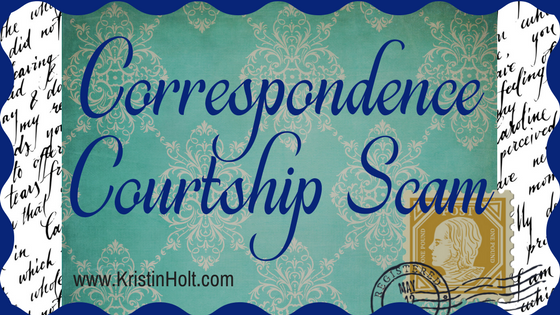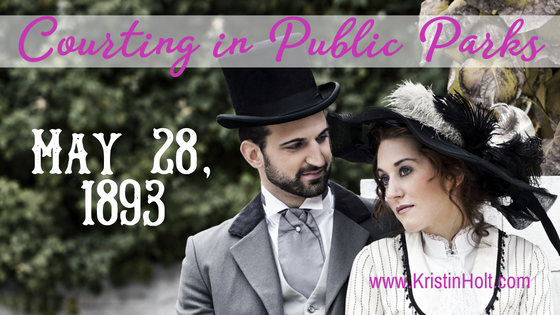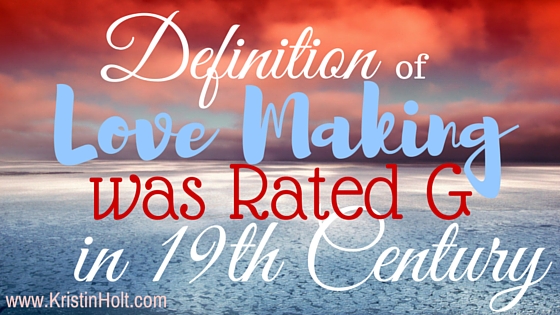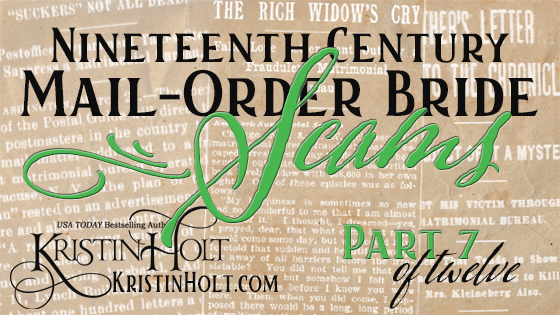
by Kristin Holt | Nov 9, 2017 | Articles
In 1905, The Courier of Harrisburg, Pennsylvania published an article detailing a “Correspondence” Courtship Scam. A young, innocent girl lost more than her heart, more than $1,000 (a fortune in today’s dollar)–she lost her confidence and her trust in humanity.

by Kristin Holt | Apr 28, 2017 | Articles
An 1865 newspaper article persuades all young people to tell the truth in courtship, and attempts to convince all readers of the stark benefits, compared to disastrous tragedies, when his advice is ignored. A powerful view into Victorian history and attitudes about courtship and marriage.

by Kristin Holt | Nov 22, 2016 | Articles
In 1893, expectations surrounding courtship made it improper for a couple to show affection for one another in public. Baltimore apparently outlawed simple signs of affection in their city parks, raising the alarm in New York City where Central Park was a key location for courting couples to go about their courtship (which included simple things like sitting on a bench together, a man’s arm about his sweetheart’s waist). This article includes a newspaperman’s interview with two different Central Park policemen, one who favored strict laws prohibiting such displays of affection and one who was most tolerant. Step back in time and enjoy an entire vintage newspaper article and historic images of Central Park in the late 19th century.

by Kristin Holt | Apr 15, 2016 | Articles
In my recent post about The Proper (and safe) Way to Terminate a Victorian American Courtship because we all know the threat of a suit of Breach of Promise was too great, a quote by the Reverend George W. Hudson in his 1883 book sounded rather scandalous. The good reverend actually said “making love”–and he didn’t mean in a sexual way. It’s essential to note that the term had a very different meaning in the 19th Century and early 20th Century than it does now.

by Kristin Holt | Mar 3, 2016 | Articles
- Scammers threw out baited hooks to entrap the unsuspecting…and “suckers” fell for it far too often. This article covers a few short newspaper reports of circumstances wherein the honest fell for scams and ultimately paid plenty.
- The Postoffice Department takes steps to Suppress a Matrimonial Bureau. [sic]
- Six young boys run a scam, presenting themselves as a wealthy widow seeking a husband.













